When it comes to maintaining a healthy lifestyle, keeping track of your calorie intake is essential. Understanding the nutritional value of the foods we consume is crucial, especially when indulging in burger favorites like wheat buns. These fluffy delights often take center stage, but have you ever wondered how many calories you’re consuming with each bite?
Let’s dive into the calories and carbohydrate content of wheat buns. A standard wheat bun typically contains around 120 to 150 calories. The primary ingredient in these buns is wheat flour, which contributes to their carbohydrate content. On average, a wheat bun contains 21 to 30 grams of carbohydrates. Some buns may also include additional ingredients like sugar or honey, further increasing the carb count.
Key Takeaways:
- A standard wheat bun contains around 120 to 150 calories.
- Wheat buns typically have 21 to 30 grams of carbohydrates.
- Some buns may contain added sugars, increasing the carbohydrate content.
- Healthy alternatives like whole wheat or multigrain buns offer more fiber and nutrients.
- If you’re watching your carb intake, consider lettuce wraps, portobello mushroom caps, or gluten-free buns as alternatives.
Now that we’ve unveiled the calorie content of wheat buns, as well as their impact on your carbohydrate intake, it’s important to find a balance between enjoying your favorite burgers and maintaining a healthy lifestyle. With healthier alternatives and mindful food choices, you can continue to relish the deliciousness of a wheat bun while keeping your health goals on track.
Understanding the Nutritional Value of Wheat Buns
Wheat buns are a popular choice for burger lovers, but it’s important to understand the amount of calories they contain. A standard wheat bun typically contains around 120 to 160 calories, depending on its size. These calories come primarily from carbohydrates, which are an essential source of energy for our bodies.
The carbohydrate content in wheat buns varies between 21 to 30 grams per serving. This amount of carbohydrates contributes to the overall calorie count of the bun. Wheat flour, the primary ingredient in these buns, is rich in carbohydrates. However, some buns may also have added sugars or sweeteners, which can further increase the carbohydrate content.
Despite their calorie and carbohydrate content, wheat buns can still be part of a healthy diet when consumed in moderation. They provide essential nutrients like fiber, vitamins, and minerals. However, if you’re looking for healthier alternatives, consider opting for whole wheat or multigrain buns.
Whole wheat and multigrain buns are made with whole wheat flour or a mixture of different grains, which adds fiber and nutrients to your burger. These options offer a more balanced nutritional profile while still providing the satisfaction of a traditional wheat bun.
If you’re watching your carbohydrate intake, you can also explore alternative options like lettuce wraps, portobello mushroom caps, or gluten-free buns. Lettuce wraps provide a refreshing and carb-free option, while portobello mushroom caps offer a flavorful alternative. Gluten-free buns are suitable for individuals with gluten intolerance or sensitivity.
Remember, the key to enjoying a burger while maintaining a healthy lifestyle is finding a balance. Being mindful of your overall carbohydrate intake and choosing healthier alternatives can help you satisfy your cravings without compromising your nutritional goals.
The Impact of Carbohydrates in Wheat Buns
Wheat buns are primarily made from wheat flour, which is a significant source of carbohydrates. This means that indulging in a delicious burger with a wheat bun does come with a carb count to consider. On average, a standard hamburger bun contains approximately 21 to 30 grams of carbohydrates. However, it’s important to note that the exact carb content may vary depending on the size and brand of the bun.
Carbohydrates are an essential macronutrient that provides the body with energy. When consumed, carbohydrates are broken down into glucose, which our bodies use as fuel. While carbohydrates are necessary for proper bodily function, excessive consumption can contribute to weight gain and other health issues.
To make more informed choices about your carb intake, it’s helpful to know that wheat buns may also contain added sugars or honey, increasing the overall carb count. Therefore, if you’re watching your carbohydrate intake, it’s essential to be mindful of the type of bun you choose for your burger.
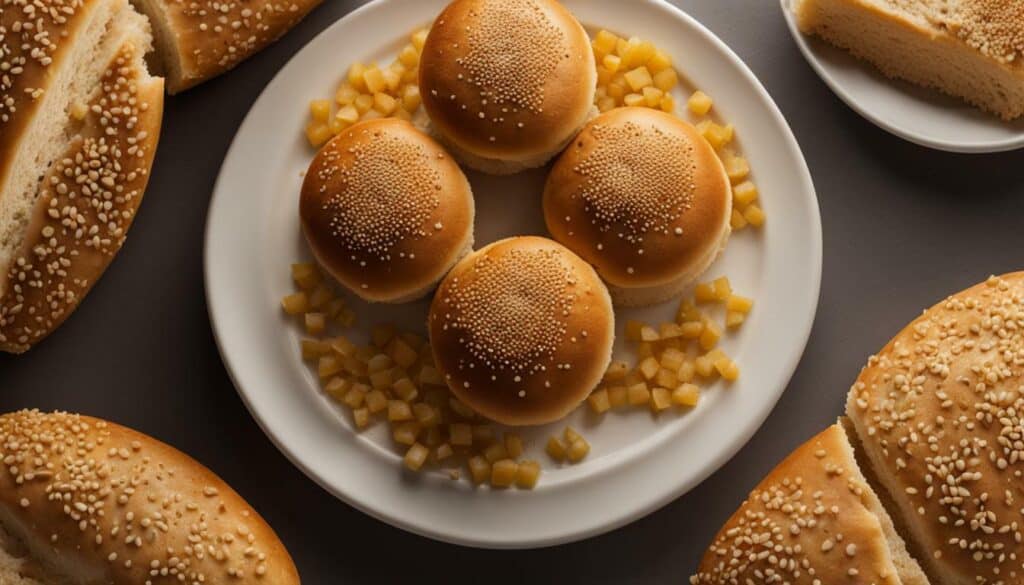
Fortunately, there are healthier alternatives available for those who are looking to reduce their carb intake. Whole wheat and multigrain buns are excellent options as they provide more fiber and nutrients than traditional white flour buns. The additional fiber helps slow down digestion, keeping you feeling fuller for longer and preventing blood sugar spikes.
If you’re on a low-carb diet or simply want to explore different options, there are creative alternatives to wheat buns that can still satisfy your burger cravings. Lettuce wraps offer a refreshing carb-free option, replacing the bun with crisp lettuce leaves. Portobello mushroom caps, on the other hand, provide a flavorful alternative with added nutrition. They can be grilled and used as a bun substitute, adding a unique twist to your burger experience.
For individuals with gluten intolerance or sensitivity, gluten-free buns are available, catering to special dietary needs. These buns are made with alternative flours like almond or coconut flour and provide a tasty option while avoiding gluten.
Ultimately, when it comes to wheat buns and carbohydrates, it’s about finding a balance that works for you. Enjoying a delicious burger with a wheat bun can be part of a healthy lifestyle when consumed in moderation. By being aware of the carb content in your bun and exploring alternative options, you can create a burger experience that is both satisfying and mindful of your overall carb intake.
Healthier Alternatives: Whole Wheat and Multigrain Buns
For individuals looking for a healthier choice, whole wheat and multigrain buns offer more fiber and nutrients. These alternatives are made with whole grains, which means they retain the bran and germ of the wheat, unlike refined white flour buns. This makes them higher in fiber, which aids in digestion and helps with satiety, keeping you feeling fuller for longer.
Whole wheat and multigrain buns also provide essential nutrients such as vitamins, minerals, and antioxidants. They contain B vitamins, iron, and magnesium, which are important for energy production and maintaining overall health. The extra fiber and nutrients in these buns not only contribute to a more balanced diet but also add a delicious nutty flavor to your burger.
If you’re concerned about calories, whole wheat and multigrain buns are a great option as well. They generally have fewer calories compared to traditional white buns, making them a suitable choice for those watching their waistline. Additionally, they have a lower glycemic index than refined white buns, meaning they cause a slower rise in blood sugar levels, providing more sustained energy throughout the day.
| Bun Type | Calories per Serving | Carbohydrates per Serving | Fiber per Serving |
|---|---|---|---|
| White Bun | 120 | 22g | 1g |
| Whole Wheat Bun | 100 | 18g | 4g |
| Multigrain Bun | 110 | 19g | 3g |
As you can see from the table above, whole wheat and multigrain buns provide a substantial reduction in calories while offering more fiber. This combination can help you maintain a healthy weight and promote a balanced diet.
A delicious and nutritious choice
By opting for whole wheat or multigrain buns, you can enjoy a flavorful and satisfying burger while making a healthier choice for your overall well-being. These buns not only provide more fiber and nutrients but also have a lower calorie count compared to traditional white buns. So go ahead, indulge in a delicious burger with a whole wheat or multigrain bun – it’s a win-win for your taste buds and your health!

If you’re conscious of your calorie consumption, there are low-calorie wheat bun options available. These alternatives can help you enjoy a tasty burger without worrying about excess calories. One option is to choose a thin or light wheat bun, which typically has fewer calories than a standard bun. These buns are designed to be lower in calories while still providing the same delicious taste and texture.
Another low-calorie option is to opt for a lettuce wrap instead of a traditional wheat bun. Lettuce wraps are a refreshing and carb-free alternative that can save you calories. Simply wrap your burger patty in a large piece of lettuce, like iceberg or romaine, and enjoy the crunch and freshness it adds to your burger experience.
If you’re looking for a flavorful alternative, consider using portobello mushroom caps as your “bun.” These juicy and meaty mushrooms not only provide a delicious taste but also offer a low-calorie option. Simply grill or roast the mushroom caps and use them to sandwich your burger patty, adding a savory twist to your meal.
To summarize, if you’re watching your calorie intake, there are several low-calorie options for wheat bun lovers. You can choose thin or light wheat buns, opt for lettuce wraps, or try using portobello mushroom caps as an alternative. It’s all about finding a balance between enjoying your favorite burger and maintaining a healthy lifestyle.
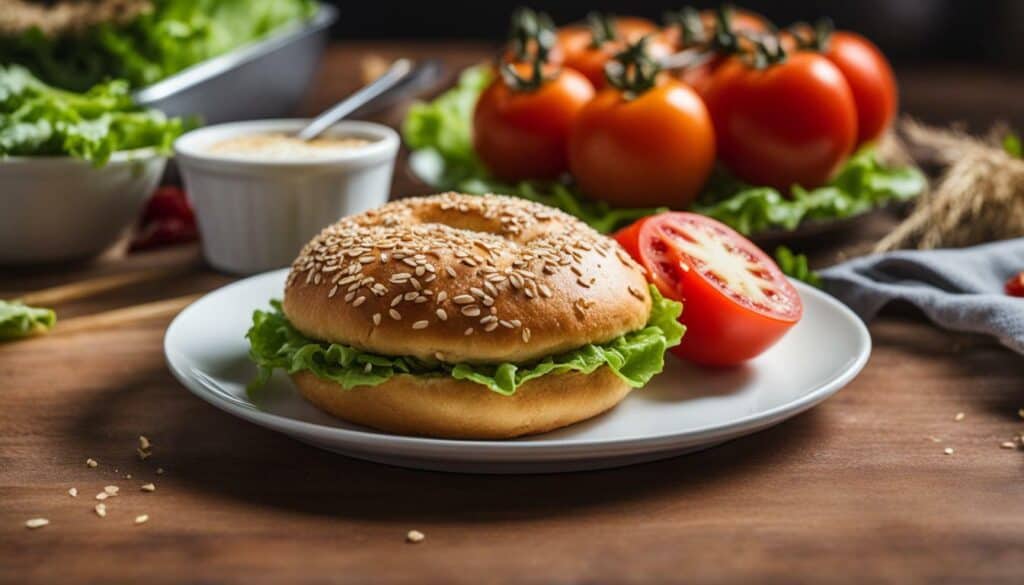
| Low-Calorie Wheat Buns | Calories per bun | Carbohydrates per bun |
|---|---|---|
| Thin or Light Wheat Bun | Approximately 70-90 calories | 15-20 grams |
| Lettuce Wrap | Negligible calories | Negligible carbohydrates |
| Portobello Mushroom Cap | Around 30-40 calories | 5-8 grams |
Alternatives to Wheat Buns for Reduced Carb Intake
If you’re following a low-carb diet, there are alternatives to wheat buns that you can enjoy guilt-free. While traditional hamburger buns are delicious, they can be high in carbohydrates, which may not align with your dietary goals. Fortunately, there are several options that can still provide a satisfying burger experience without the unnecessary carbs.

One popular alternative is lettuce wraps. Crisp and refreshing, lettuce leaves can be used to encase your burger patty and fillings, providing a crunchy and low-carb option. Lettuce wraps not only reduce the carb count but also add an extra layer of freshness to your burger. Plus, they’re easy to prepare and can be enjoyed by those following a gluten-free or paleo diet.
Another option to consider is portobello mushroom caps. These hearty mushrooms make a flavorful and nutritious substitute for traditional buns. With their meaty texture and earthy taste, portobello mushroom caps can complement the flavors of your burger while providing fewer carbs. Simply grill or bake them until tender, and you’ll have a tasty alternative that adds a unique twist to your burger experience.
| Alternative | Carbohydrate Content (per serving) |
|---|---|
| Lettuce wraps | 1-2 grams |
| Portobello mushroom caps | 2-3 grams |
If you’re looking for a gluten-free option, there are also buns available that cater to special dietary needs. Gluten-free buns are made with alternative flours such as almond or coconut flour, which offer a lower carbohydrate and gluten-free alternative to traditional wheat buns. These buns can be found in many health food stores or can even be made at home using gluten-free recipes.
When it comes to reducing your carb intake while still enjoying a burger, it’s important to explore the various alternatives available. Whether you opt for lettuce wraps, portobello mushroom caps, or gluten-free buns, you can satisfy your cravings without compromising your dietary goals. Remember, finding a balance that works for you is key to maintaining a healthy lifestyle while still indulging in the occasional burger.
Lettuce Wraps: A Refreshing Carb-Free Option
Lettuce wraps offer a refreshing and carb-free option for those who want to reduce their wheat bun intake. Whether you’re following a low-carb diet or just looking for a lighter alternative, lettuce wraps are a delicious and healthy choice.
One of the great things about lettuce wraps is their versatility. You can use any type of lettuce you prefer, from crisp iceberg to tender butter lettuce. Simply remove the core and separate the leaves to create the perfect wrap for your burger. Not only do lettuce wraps provide a satisfying crunch, but they also add a fresh and vibrant element to your meal.
Not only are lettuce wraps low in carbs, but they are also low in calories. A typical lettuce wrap contains only about 5 calories per leaf, making it a great choice for those watching their calorie intake. Plus, lettuce is rich in vitamins and minerals, adding an extra health boost to your burger.
Create Your Own Lettuce Wrap
Creating your own lettuce wrap is easy. Simply place your choice of patty, whether it’s beef, chicken, or veggie, onto a lettuce leaf. Top it with your favorite toppings like cheese, tomatoes, onions, and pickles. Wrap it up tightly and enjoy!
| Topping | Calories | Carbohydrates (g) | Fiber (g) |
|---|---|---|---|
| Cheese (1 slice) | 80 | 1 | 0 |
| Tomato (1 slice) | 5 | 1 | 0 |
| Onion (1 slice) | 5 | 1 | 0 |
| Pickles (2 slices) | 10 | 2 | 0 |
As you can see, lettuce wraps not only provide a carb-free alternative to wheat buns but also allow you to customize your burger exactly to your preferences. So, next time you’re craving a burger, give lettuce wraps a try for a lighter and healthier option.
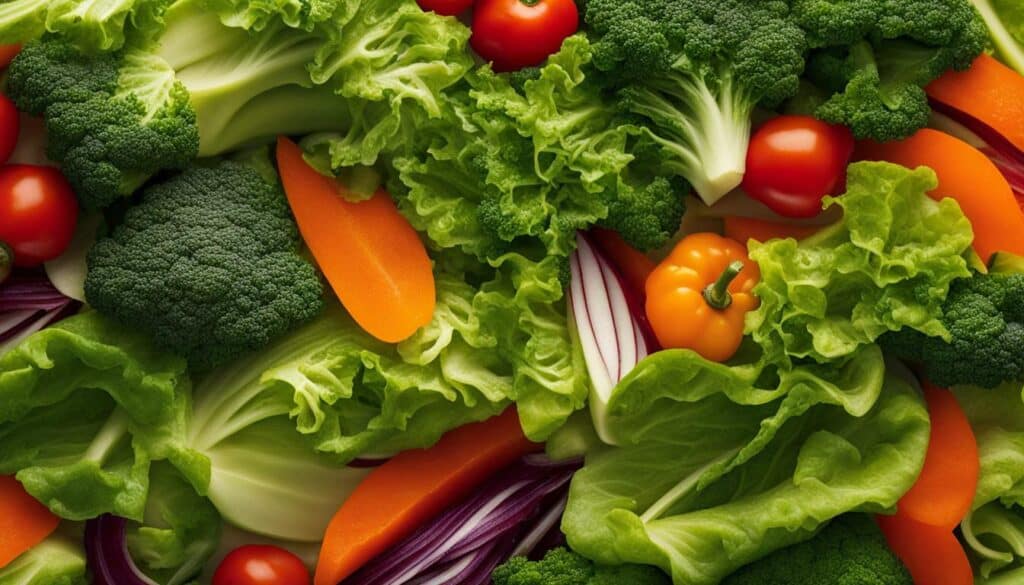
Portobello mushroom caps provide a delicious and nutritious alternative to traditional wheat buns. These large, meaty mushrooms have a natural umami flavor that can enhance any burger experience. Not only do they add a unique taste to your meal, but they also offer various health benefits.
One of the advantages of using portobello mushroom caps as a bun replacement is their low-calorie content. With only about 22 calories per 100 grams, they are significantly lighter than wheat buns. This makes them an excellent choice for individuals looking to reduce their calorie intake while still enjoying a satisfying burger.
Portobello mushroom caps are also a great source of nutrients. They are low in fat and provide essential vitamins and minerals, including vitamin B2, vitamin D, and potassium. Additionally, they are a good source of fiber, which aids in digestion and helps maintain a healthy gut.
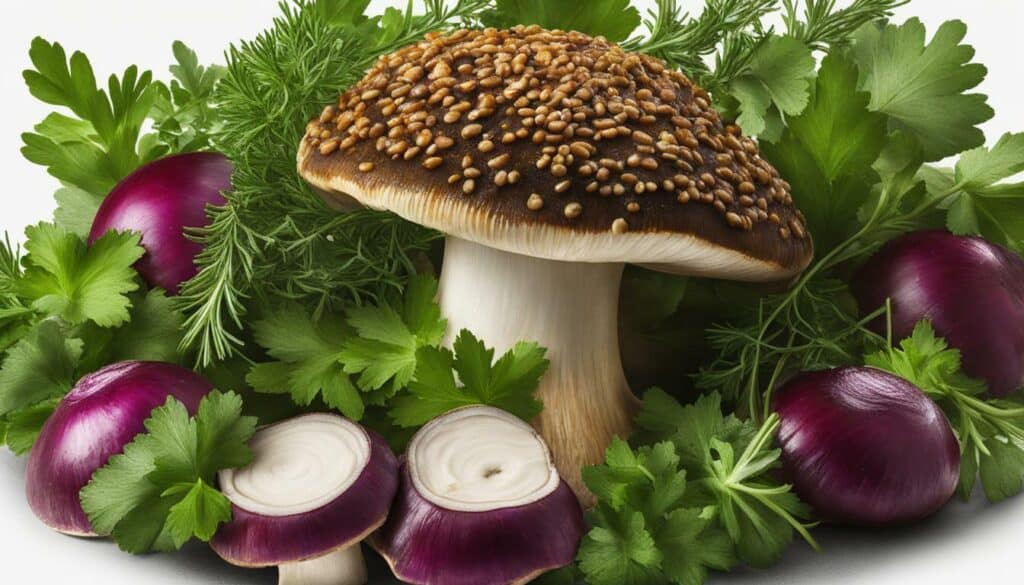
To prepare portobello mushroom caps for use as burger buns, simply remove the stems and wipe the caps clean. You can marinate them in your favorite seasonings, such as balsamic vinegar, olive oil, or garlic, to add even more flavor. Then, grill or roast them until they are tender and juicy.
Whether you’re looking for a healthier alternative to wheat buns or simply want to try something new and flavorful, portobello mushroom caps are an excellent choice. They provide a satisfying base for your burger, packed with nutrients and a rich taste that will elevate your burger game to a whole new level.
Gluten-Free Buns: Catering to Special Dietary Needs
For individuals with special dietary needs, gluten-free buns offer a suitable choice for burger enjoyment. These buns are specifically crafted to be free from gluten, a protein found in wheat, barley, and rye that can cause adverse reactions in those with celiac disease or gluten sensitivity. By opting for gluten-free buns, individuals can still savor the deliciousness of a burger without compromising their health or experiencing discomfort.
Gluten-free buns are typically made from alternative flours, such as rice flour, almond flour, or tapioca flour. These flours provide a similar texture and taste to traditional wheat buns, ensuring a satisfying burger experience. To enhance the nutritional value, many gluten-free buns are fortified with additional nutrients like fiber, vitamins, and minerals to make up for any potential deficiencies caused by eliminating wheat from the diet.
In terms of calorie count, gluten-free buns are comparable to their wheat counterparts. On average, a gluten-free bun contains around 120 to 150 calories, depending on its size and ingredients. It’s important to note that while gluten-free buns may be a suitable choice for those with special dietary needs, individuals without gluten-related conditions may not experience any added health benefits from consuming gluten-free products. It’s always best to consult with a healthcare professional or registered dietitian to determine your specific dietary needs.
| Nutritional Information of Gluten-Free Buns | |
|---|---|
| Calories | 120-150 |
| Carbohydrates | 20-30 grams |
| Protein | 3-5 grams |
| Fat | 3-5 grams |
As with any dietary choice, it’s essential to read the labels and choose gluten-free buns that align with your specific needs and preferences. Additionally, be mindful of cross-contamination in restaurants or shared facilities where gluten-free buns may come into contact with gluten-containing ingredients. Taking these precautions will help ensure a safe and enjoyable dining experience for individuals with gluten intolerance or sensitivity.

By embracing gluten-free buns, individuals with special dietary needs can continue to indulge in the classic burger experience. These buns provide a tasty and inclusive option that allows everyone to enjoy a delicious burger while prioritizing their health. Remember, it’s always important to find a balance in your diet and make choices that align with your unique needs and preferences.
Conclusion
Understanding the calorie content and nutritional value of wheat buns is crucial for making informed choices towards a healthier diet. When it comes to calorie count, a standard wheat bun typically ranges from 150 to 200 calories, depending on its size. This means that if you’re conscious of your calorie intake, it’s important to factor in the bun when enjoying a burger.
Aside from calories, it’s essential to consider the carb content of wheat buns. On average, a regular wheat bun contains about 21 to 30 grams of carbohydrates. This primarily comes from the wheat flour used in the bun’s preparation. Some varieties may also contain added sugars or honey, increasing the carb count.
However, there are healthier alternatives available for those looking to reduce their carb intake or add more nutrients to their meal. Whole wheat and multigrain buns, for example, offer more fiber and essential nutrients compared to traditional wheat buns. Choosing these options can help you maintain a balanced diet while still enjoying your favorite burger.
For individuals who are watching their carb intake more closely, there are carb-free alternatives to wheat buns. Lettuce wraps make for a refreshing and low-carb option. Portobello mushroom caps, on the other hand, provide a flavorful alternative with added nutritional benefits. And for those with gluten intolerance or sensitivity, gluten-free buns are available to cater to their dietary needs.
In conclusion, while wheat buns are a staple in the burger experience, it’s important to be mindful of their impact on your overall diet. By understanding the calorie content and nutritional value, you can make informed choices that align with your health goals. Whether you opt for healthier bun alternatives or explore carb-free options, finding a balance between enjoyment and maintaining a healthy lifestyle is key.
FAQ
Q: How many calories are in a wheat bun?
A: A standard wheat bun typically contains around 21 to 30 grams of carbohydrates.
Q: What are the primary ingredients in a wheat bun?
A: The primary ingredient in a wheat bun is wheat flour, which contains carbohydrates. Some buns may also include additional ingredients like sugar or honey.
Q: Are there healthier alternatives to traditional wheat buns?
A: Yes, healthier alternatives include whole wheat or multigrain buns, which offer more fiber and nutrients.
Q: Can I still enjoy a burger while watching my carb intake?
A: Absolutely. You can opt for lettuce wraps, portobello mushroom caps, or gluten-free buns as alternatives to traditional wheat buns.
Q: Are lettuce wraps carb-free?
A: Yes, lettuce wraps are a refreshing carb-free option for those who want to reduce their carb intake.
Q: What are the nutritional benefits of portobello mushroom caps?
A: Portobello mushroom caps are flavorful and offer a low-carb alternative to wheat buns, while also providing essential nutrients.
Q: Are there options for individuals with gluten intolerance or sensitivity?
A: Yes, gluten-free buns are available as an option for those with special dietary needs.
Q: How important is finding a balance between enjoyment and a healthy lifestyle?
A: It’s crucial to find a balance that allows you to enjoy your food while maintaining a healthy lifestyle. Being mindful of your overall carb intake is key.
Is Cooking Onions the Healthiest Way to Consume Them?
Many people wonder about the onions nutrition benefits when cooked. While cooking onions can slightly reduce their vitamin C content, it actually enhances the availability of other beneficial compounds. Heat breaks down the cell walls, making it easier for your body to absorb antioxidants and beneficial compounds found in onions. So, cooking onions can still be a nutritious and delicious way to enjoy them.

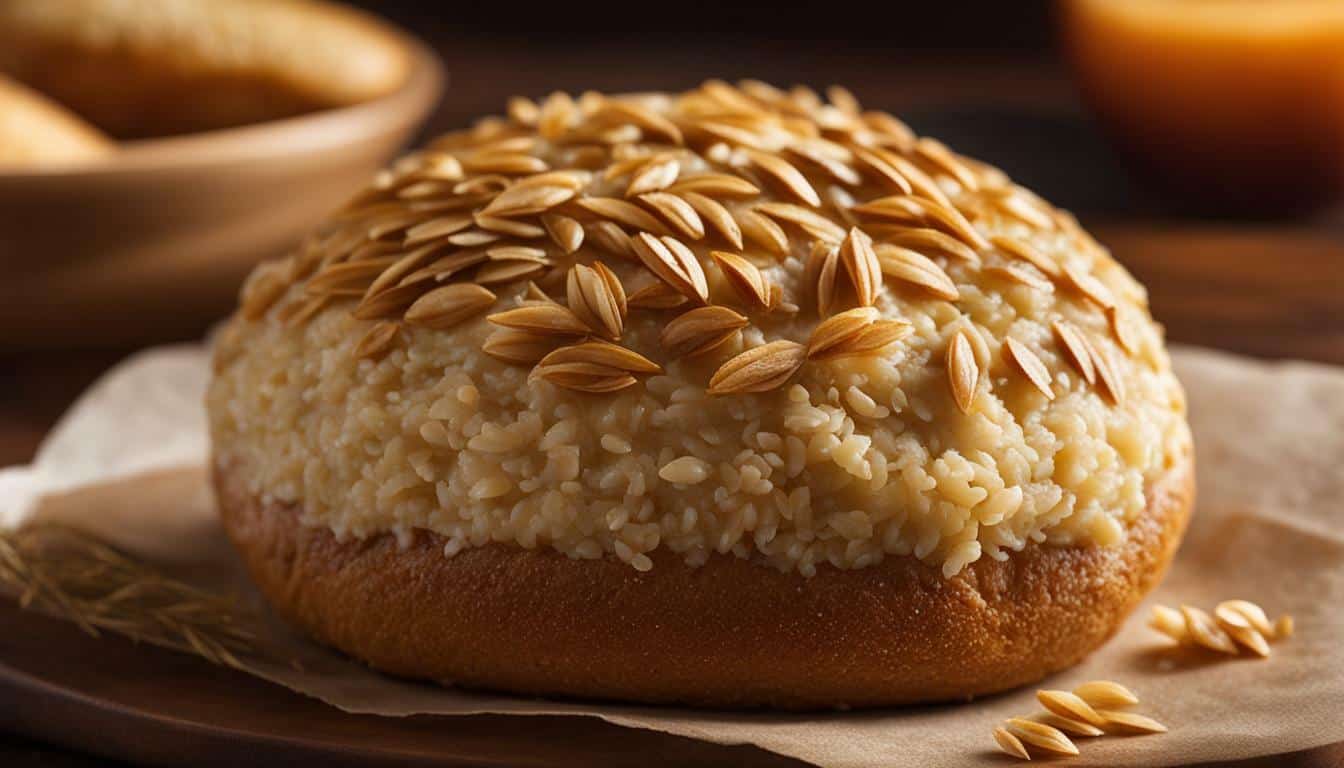



Leave a Reply